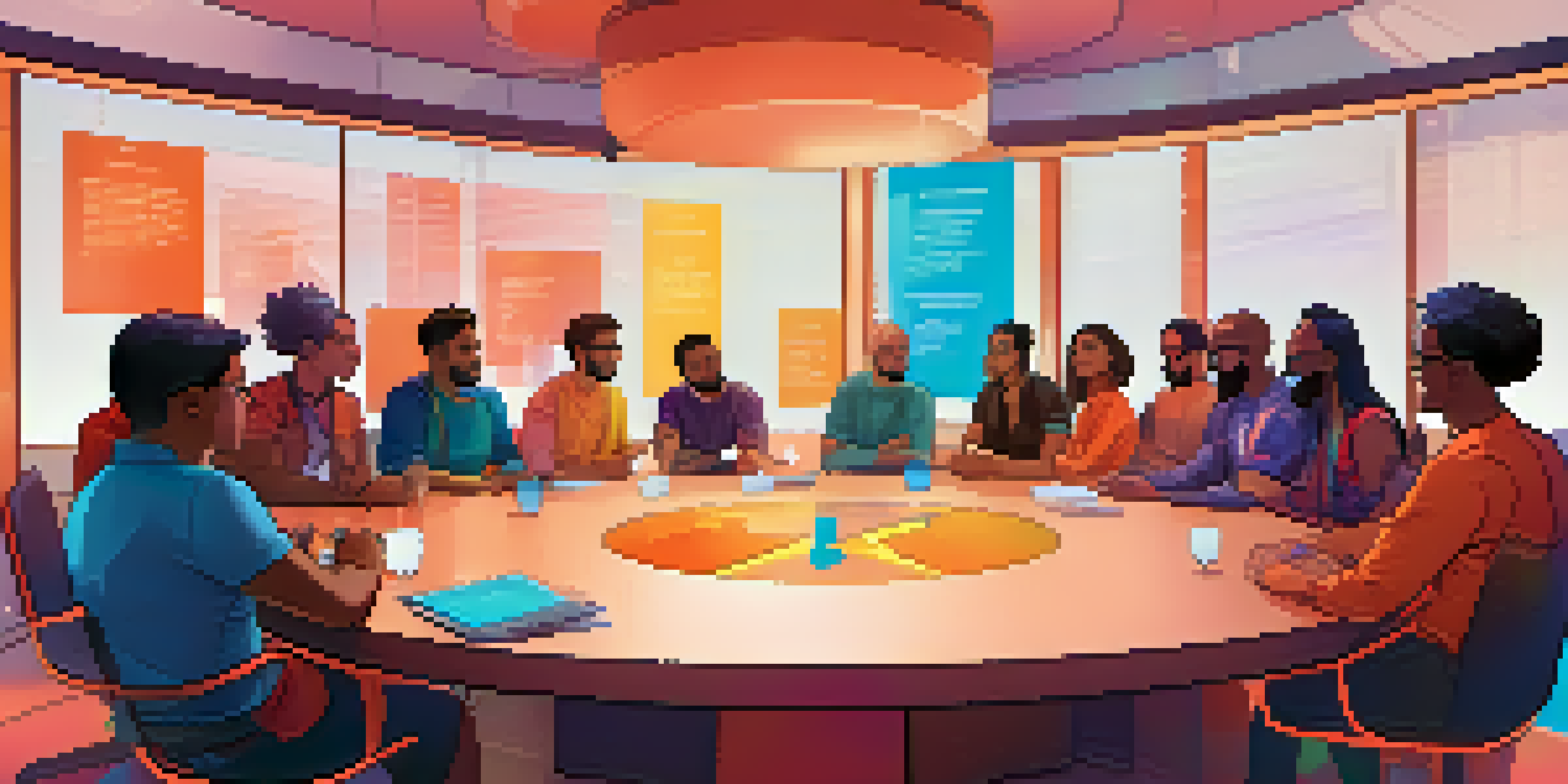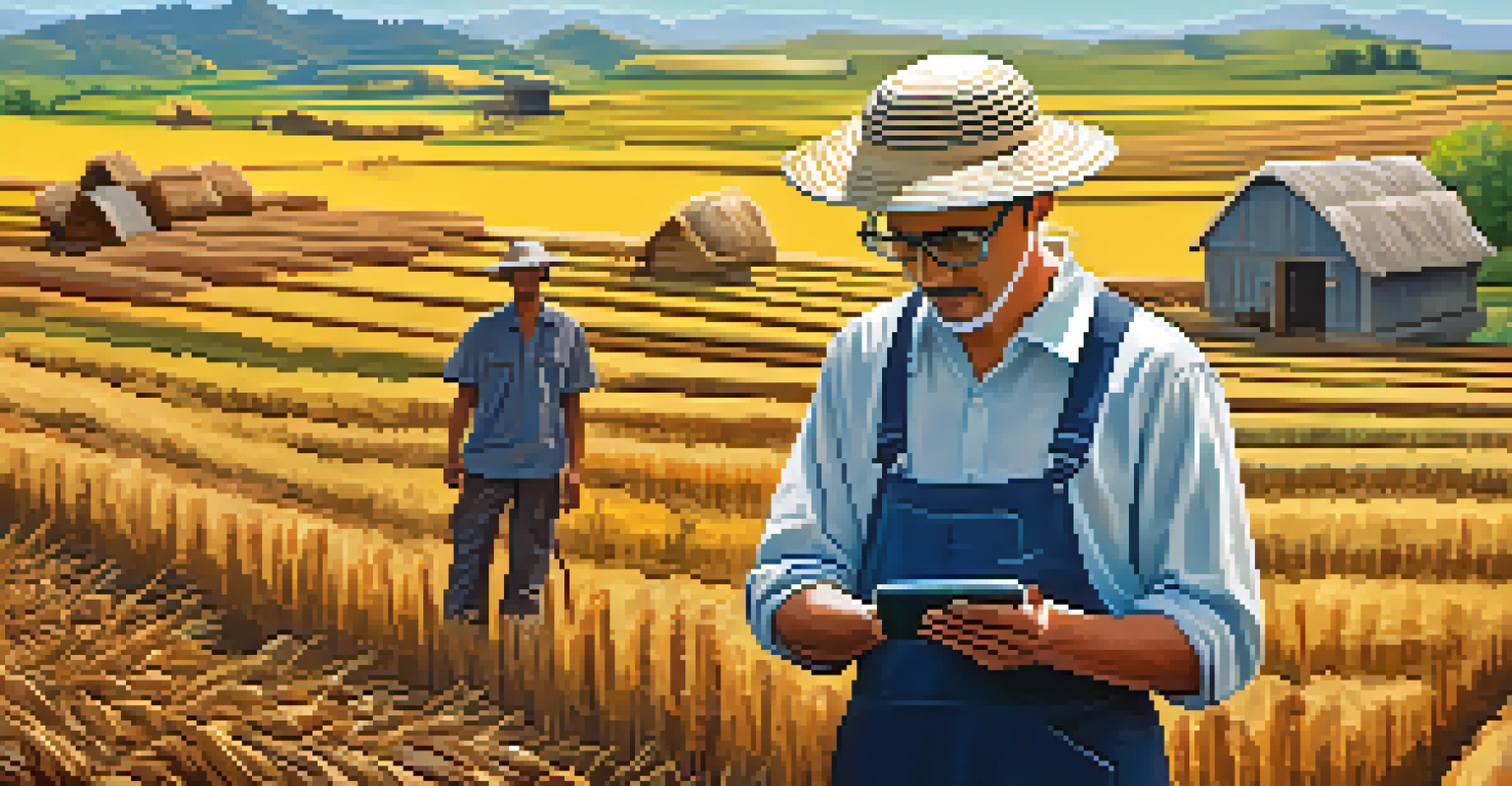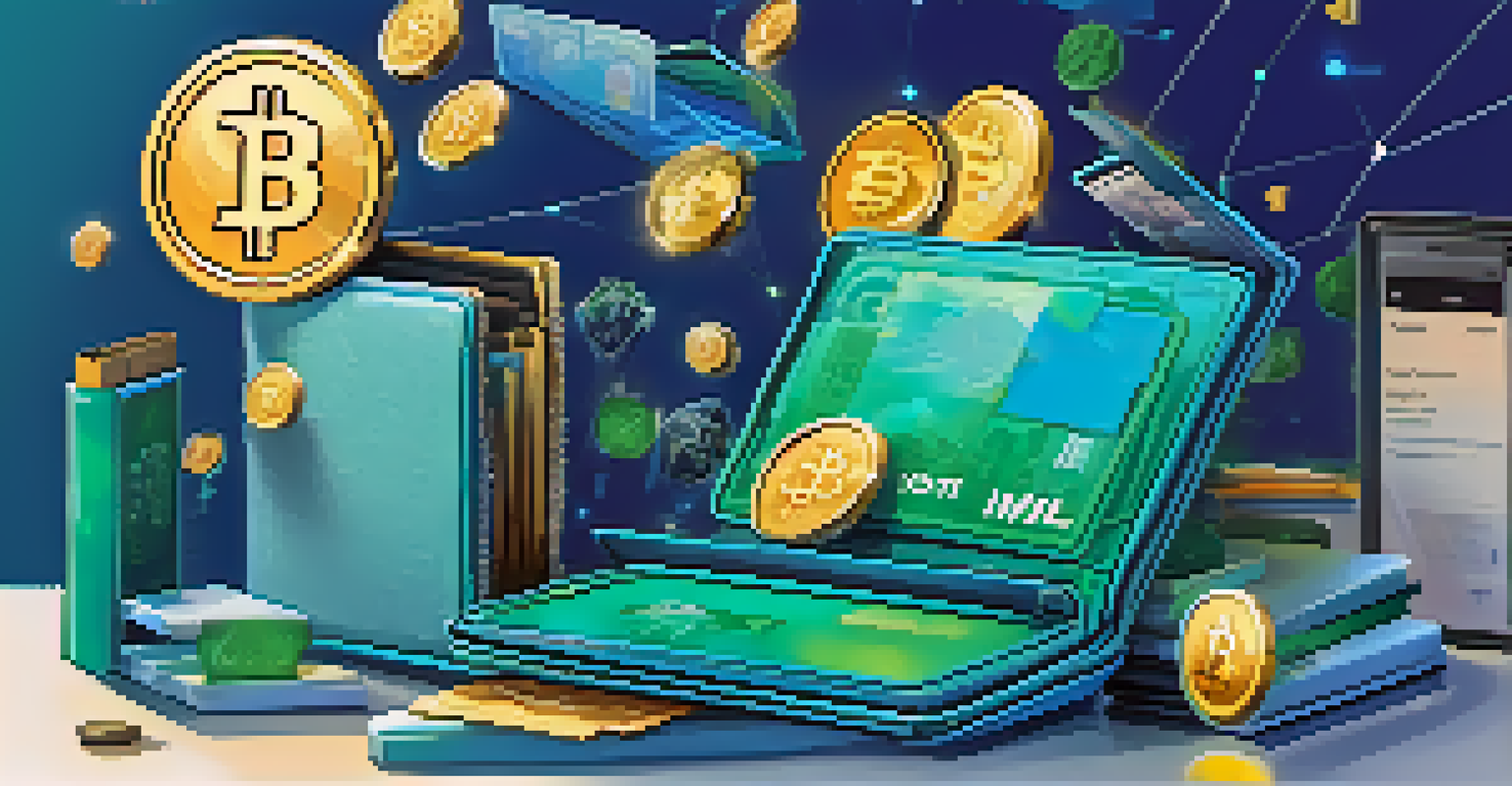The Role of Decentralized Autonomous Organizations (DAOs) in DeFi

What Are Decentralized Autonomous Organizations (DAOs)?
Decentralized Autonomous Organizations, or DAOs, are organizations that operate without centralized control. They leverage blockchain technology to enable decision-making through smart contracts and community voting. In essence, DAOs function like a digital cooperative where members participate in governance, making them distinct from traditional organizations.
DAOs have the potential to democratize access to financial systems and empower individuals across the globe.
Imagine a club where every member has a say in how things are run, from the budget to the activities. This democratic approach is what makes DAOs appealing, especially in the realm of finance. By removing intermediaries, DAOs reduce costs and increase transparency, allowing for a more equitable distribution of power.
In the rapidly evolving world of finance, DAOs are becoming crucial players. They enable communities to pool resources and make collective decisions, fostering innovation and inclusivity in financial systems.
DAOs as Governance Models in DeFi
Governance is a key aspect of any organization, and in decentralized finance (DeFi), DAOs provide a valuable model. Through token-based voting, members can propose and vote on changes, ensuring that everyone has a voice in the organization's direction. This governance structure allows for agility and responsiveness to the ever-changing DeFi landscape.

Think of it as a town hall meeting where everyone discusses and votes on important issues affecting the community. This democratic process helps to build trust among members, as decisions are made collaboratively rather than imposed by a central authority. It encourages active participation and accountability.
DAOs Enhance Financial Inclusion
DAOs democratize access to finance by enabling anyone with an internet connection to engage in financial activities, breaking down traditional barriers.
Moreover, DAOs can adapt their governance models based on community needs, creating a tailored experience that fosters engagement. This flexibility is particularly beneficial in the fast-paced world of DeFi, where new challenges and opportunities constantly arise.
The Impact of DAOs on Financial Inclusion
One of the most striking benefits of DAOs is their potential to enhance financial inclusion. Traditionally, access to finance has been limited by geographical and economic barriers. DAOs democratize access by enabling anyone with an internet connection to participate in financial activities, regardless of their location.
The future of finance is about decentralization and community-driven governance, and DAOs are at the heart of this transformation.
Imagine a farmer in a remote village who can now access loans or insurance directly through a DAO, bypassing traditional banks. This opens up new opportunities for individuals and communities that have historically been underserved. DAOs can create pathways for people to engage in economic activities that were previously out of reach.
Additionally, DAOs often operate on a global scale, connecting diverse participants and fostering collaboration across borders. This interconnectedness can lead to innovative financial solutions that cater to a wider audience, driving economic growth and empowerment.
Challenges DAOs Face in the DeFi Space
Despite their many advantages, DAOs also encounter significant challenges. One major issue is the potential for governance attacks, where malicious actors can exploit voting mechanisms to manipulate decisions. These vulnerabilities highlight the importance of robust security measures and community vigilance.
Consider a scenario where a small group of token holders could sway a vote to benefit their interests at the expense of others. This risk emphasizes the need for transparency and fairness in the voting process. DAOs must continuously evolve to mitigate these threats and maintain trust among participants.
Governance Models in DeFi
DAOs utilize token-based voting to ensure collective decision-making, fostering agility and trust in the ever-evolving decentralized finance landscape.
Furthermore, the legal status of DAOs remains ambiguous in many jurisdictions, creating uncertainties around liability and regulation. As the DeFi landscape matures, establishing clear legal frameworks will be essential for the long-term sustainability of DAOs.
DAOs and the Future of DeFi Innovations
DAOs are at the forefront of DeFi innovations, paving the way for new financial products and services. Their collaborative nature encourages experimentation, enabling communities to explore novel ideas that traditional finance might resist. This spirit of innovation is crucial for driving the DeFi ecosystem forward.
For instance, DAOs can facilitate the creation of decentralized insurance platforms where members collectively manage risk. This shifts the paradigm from profit-driven motives to community-focused solutions, aligning incentives with the needs of participants. Such advancements have the potential to reshape entire industries.
As we look to the future, the synergy between DAOs and DeFi could unlock unprecedented opportunities. By harnessing collective intelligence and resources, DAOs can lead to the development of financial tools that are more accessible, equitable, and aligned with the values of their communities.
Real-World Examples of Successful DAOs
Several successful DAOs have emerged in the DeFi space, showcasing the power of collective governance. For instance, MakerDAO has established a decentralized platform for creating and managing the DAI stablecoin, allowing users to participate in decision-making regarding collateral and risk management. This model has encouraged a vibrant community of users and developers.
Another notable example is Aave, a decentralized lending platform that empowers users to borrow and lend assets without intermediaries. Aave's governance structure allows token holders to propose and vote on protocol upgrades, ensuring that the platform evolves in line with community needs. These real-world examples illustrate how DAOs can drive innovation and user engagement.
DAOs Drive Financial Innovation
By encouraging collaboration and experimentation, DAOs are paving the way for new financial products and services that prioritize community needs.
These DAOs not only demonstrate the feasibility of decentralized governance but also inspire others to explore similar models. As more projects adopt the DAO framework, the potential for transformative change in finance continues to grow.
The Future of DAOs in Decentralized Finance
Looking ahead, the future of DAOs in DeFi is bright and full of possibilities. As more individuals recognize the benefits of decentralized governance, we can expect a surge in DAO adoption across various sectors. This shift will likely lead to a more inclusive and resilient financial ecosystem.
Moreover, advancements in technology, especially in blockchain and smart contracts, will enhance the capabilities of DAOs. These innovations could result in more sophisticated governance models, improved security measures, and greater ease of use for participants. The potential for continuous evolution is a hallmark of the DAO structure.

Ultimately, DAOs represent a paradigm shift in how we think about organizations and governance, particularly in finance. By harnessing the power of community and technology, DAOs can redefine what it means to collaborate, innovate, and build a more equitable financial future.